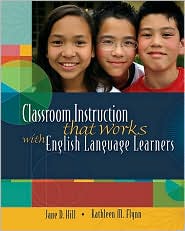Yeah, yeah, the start of the school year seems to be that storm cloud on the horizon, barely perceptible now, but time has a way of creeping up, broaching distance and sooner or later, the sun will drape itself with darker garments. So don't be unprepared!
Tips for a More Focused 2010 School Year
1. Get plenty of rest!
2. Take (at least) a moment to reflect upon your instruction and student learning from the past school year. I know, it's in the past now, it's summer, soon enough I'll get to do it all over again, yadda yadda yadda... Nonetheless, think about areas that were strengths, that you (Should) feel proud about, it could be around ELLs. But also think aboutareas in your instruction that you felt could use some bolstering (As measured by whether or not your students were able to take away a particular concept). A reflective teacher is open to change and change leads to growth, which will lead to improved student learning!
And as the school year approaches...
3. Re(Familiarize) yourself with your districts procedures for identifying, placing and following up on ELL students. Questions to ask yourself, colleagues or admin can include:
- Does our district have a Master Plan specifically outlining what programs & services ELLs
should be receiving?
- How are ELL students identified?
- What is the procedure for identifying ELL students? Incoming kindergartners? Newcomers?
Transfer students?
- Who places ELL students into classrooms (in general) and my classroom (specifically).
- What is my responsibility for monitoring an ELL student's progress?
- What systems should the school have in place if my ELL still needs help beyond my
instruction?
That's plenty to mull over for now. While many of us may not regularly engage in this type of proactive questioning, remember that we are our students' advocates. ELLs have been historically underserved by our educational system- it wasn't until the 1980s that they were considered as having unique needs!
As always, I appreciate your efforts for tirelessly stepping up to this role through your teaching, counseling, advising, supporting and being a consistent positive role and academic model for our ELLs!
- W
About Me
- Weezy
- I am an extrovert by nature and an introspect when necessary. I enjoy life and do not take it for granted. My passion is to help educators become more effective at what they do, not only through changing practices, but changing assumptions about the students they teach- particularly, students of color, Standard English Leaners, English Language learners and all others who have been systematically denied access to core curriculum and subjugated to low expectations.
Subscribe to:
Post Comments (Atom)





No comments:
Post a Comment